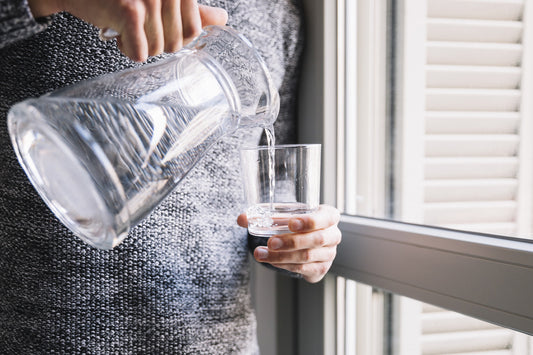Water is an integral part of our lives, but not all water is created equal. The difference between hard and soft water can significantly impact your home, health, and wallet. Let's dive deep into the world of soft water and discover its myriad benefits.
Introduction to Water Softening
Every household relies on water for various activities, from cooking and cleaning to bathing and drinking. However, the quality of water can vary, leading to different experiences and challenges. One of the primary distinctions in water quality is its hardness.
What is Hard Water?
Hard water is rich in minerals like calcium, magnesium, and iron. While these minerals aren't harmful to health, they can cause a range of household and personal issues. For instance, hard water can leave residues on dishes, cause soap not to lather effectively, and even lead to skin and hair problems.

Image by Freepik
The Journey from Rain to Tap
Rainwater, in its purest form, is soft. However, as it travels through the ground, it picks up minerals, turning it hard. This natural process transforms the rain's purity, leading to the challenges many households face. Over time, this mineral-laden water makes its way to our taps, bringing with it the issues associated with hard water.
The Science Behind Soft Water
To truly appreciate the benefits of soft water, one must understand the science behind it.
Measuring Water Hardness: Grains per Gallon
Water hardness is measured in grains per gallon (GPG). The higher the GPG, the harder the water. Soft water measures close to zero GPG, making it ideal for household use. Most households aim to reduce their water's GPG to ensure they enjoy the benefits of soft water.
The Soap Experiment: A Visual Proof
A simple experiment can highlight the difference between hard and soft water. Take two bottles: one with hard water and another with soft water. Add a drop of soap to each and shake. The soft water will produce more suds, visually proving its superior quality. This experiment underscores the challenges of using hard water for cleaning and personal care.
Benefits of Soft Water
The advantages of soft water extend beyond just cleaner dishes or softer skin.
Protecting Your Home's Infrastructure
Hard water can damage your home's plumbing by depositing minerals. Over time, these deposits can lead to blockages, reducing water pressure and causing potential leaks. Soft water, on the other hand, can help maintain the integrity of your plumbing system, ensuring a longer lifespan and fewer repairs.

Image by pressfoto on Freepik
The Economic and Ecological Impact
Homes with water softeners use up to 70% less soap, saving money and reducing environmental waste. Soft water also increases the lifespan of appliances, leading to further savings. Over time, these savings can be significant, making the investment in a water softener well worth it.
Personal Health and Well-being
Beyond household benefits, soft water can enhance your personal well-being.
Skin and Hair: The Soft Water Advantage
Hard water strips the skin of its natural oils, causing dryness. Soft water, on the other hand, hydrates the skin and rejuvenates dull hair, offering a spa-like experience at home. Many people who switch to soft water report improvements in their skin and hair health, making it a popular choice for those looking for natural beauty solutions.
Making the Switch: Investing in a Water Softener
Given the numerous benefits, investing in a water softener is a no-brainer.
The Long-Term Savings
While there's an initial cost, the long-term savings from reduced soap usage, fewer plumbing repairs, and longer-lasting appliances make it a worthy investment. Over a few years, most households can recoup their investment, making it a financially sound decision.
Environmental Considerations
Soft water reduces the need for detergents, leading to a smaller ecological footprint. It's a step towards a greener household and a more sustainable future.

Image by Freepik
Conclusion: The Soft Water Revolution
The shift to soft water is more than just a household change; it's a revolution. It promises a healthier home, a greener planet, and enhanced well-being. Isn't it time you joined the soft water revolution?
FAQs
What's the difference between hard and soft water?
Hard water contains minerals like calcium and magnesium, while soft water has minimal mineral content.
How does soft water benefit my skin and hair?
Soft water hydrates the skin and rejuvenates hair, offering a spa-like experience.
Is soft water safe to drink?
Yes, soft water is safe to drink and can even taste better than hard water.
How does a water softener work?
A water softener removes minerals from hard water, turning it soft.
Is the investment in a water softener worth it?
Absolutely! The long-term savings and benefits far outweigh the initial cost.
Featured Image by jcomp on Freepik





